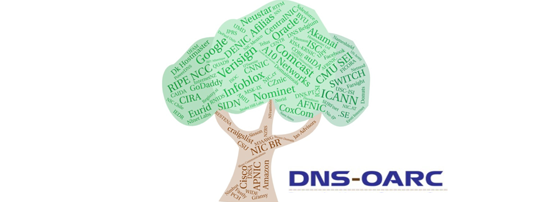
In May 2019, the Domain Name System Operations Analysis and Research Center (DNS-OARC) will be holding its biannual workshop in Bangkok, Thailand.
The event provides DNS enthusiasts the opportunity to hear from leading DNS operators, vendors and researchers, and will be the first workshop held since DNS Flag Day – a key theme of many of the presentations that have so far been announced.
Read: It’s DNS Flag Day: Here’s what you need to know
Since 2004, the workshops have provided not only a unique and valuable insight into the current state of the DNS but enabled participants to network and engage in knowledge transfer – one of the key objectives of OARC.
Stats for the Joint .@dnsoarc #OARC29 & @CENTRnews #Tech39 Public Workshop:
192 delegates checked in (inc 66 first time attendees), representing 90 companies / organisations from 36 countries. 19 speakers delivered 22 presentations and a panel session.
— DNS-OARC (@dnsoarc) October 17, 2018
Of all the work-related conferences I attend, @dnsoarc is reliably the one with the fewest uninteresting bits. Approaching zero. #OARC27 👍
— Evan Hunt (@nuthaven) September 29, 2017
More than just workshops
Founded by the Internet Systems Consortium (ISC) in 2004 (and later established as an independent legal entity with non-profit, public benefit status in 2008), DNS-OARC seeks to improve the security, stability and understanding of the Internet’s DNS infrastructure, via:
- Promoting and conducting research with operational relevance through data collection (such as ‘Day in The Life of the Internet’, also known as DITL, collection efforts) and analysis
- Offering useful, public services and tools
- Building relationships among members
- Facilitating an environment where information can be shared responsibly
- Enabling knowledge transfer by organizing open workshops
- Increasing public awareness of the significance of the DNS.
This has resulted in a diverse, motivated and highly collaborative community, which has been able to work together cohesively on pertinent issues facing the DNS, the worth of which has been highlighted in recent years against the backdrop of the growing number of malicious incidents directed towards the DNS. The rapid sharing of critical information that is vital for mitigating the impact of these incidents has only been possible due to the trusted contacts that many in the community have established through DNS-OARC.
Community development aside, OARC also manages the DNS Dataset library for research, public and member-only mailing lists, DNS traffic collection (annual DITL) and has developed a host of OpenSource DNS analysis software, including dsc, dnsperf, packetq, and dnsjit. Recent additions include RSSAC DNSCAP anonymization and the DNS Replay Tool (drool), funded by Verisign and Comcast respectively.
“drool (Release 1.0.0-beta.2) — a DNS Replay Tool” by @dnsoarc https://t.co/3W2bibm272 – via grant from @Comcast #ComcastInnovationFund
— Jason Livingood (@jlivingood) March 27, 2017
Looking ahead, we hope to continue to support and grow this critical community and welcome any new members to attend our workshops and mailing lists to see for themselves the benefits of joining. With this I’ll leave it to one of our members to say the last words and hope to see you at our upcoming workshop – OARC30 – in Bangkok, this May:
“DNS-OARC provides the invaluable mingling of DNS operators, developers, researchers, to communicate, collaborate, and share data via workshops, mail lists, and shared computing resources. Without this association I would not be aware of the current problems facing the DNS and Internet community nor be a part of their solutions.”
Contributors: Denesh Bhabuta
Sue Graves is a Membership Coordinator for DNS-OARC.
The views expressed by the authors of this blog are their own and do not necessarily reflect the views of APNIC. Please note a Code of Conduct applies to this blog.
